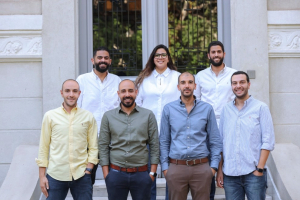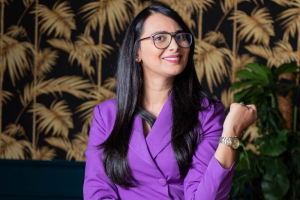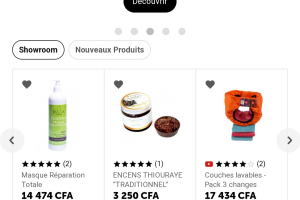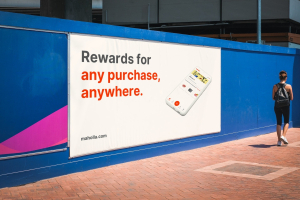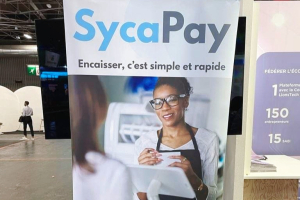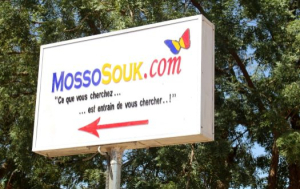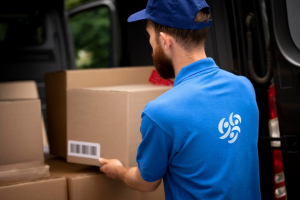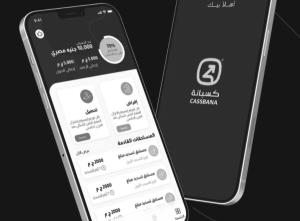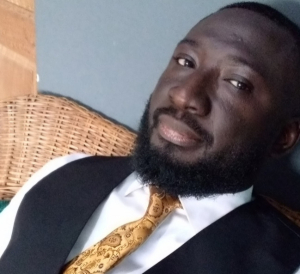Egypt: Kenzz boosts e-commerce by connecting manufacturers and consumers
The number of e-commerce platforms is increasing in Egypt, and competition for market share is fierce. Although based in Cairo, this start-up has decided to conquer other cities in the land of the pyramids.
Kenzz is an e-commerce platform developed by an Egyptian startup. It enables users to shop online at competitive prices without going through intermediaries or resellers. The Cairo-based start-up was founded in February 2022 by Ahmed Atef, Mahmoud Al Silk, and Moataz Sami. In October of the same year, it raised around $3.5 million to accelerate its growth in the domestic market.
"We’re going after a completely different segment that Amazon and the big platforms are not looking at as they are centralized in big cities and towards the people who are comfortable buying online. [...] What we’re doing is bringing that experience much closer to the masses and building a reliable, trustworthy e-commerce platform that caters specifically to the mass market, solving for the barriers to buying, whether it’s trust, affordability, and relevance while capitalizing on social engagement and social interaction aspects of e-commerce," explains Ahmed Atef.
Through the Kenzz mobile app –available for Android and iOS devices, users can create accounts with their phone numbers and access the various stores on the platform. Whether for groceries, clothing, home and sports goods, household appliances, or even books, Kenzz has stores specialized in all of those items and more.
It allows users to make group purchases, with friends or family, for up to 65% discounts. Currently, the startup has chosen to develop activities in secondary cities in Egypt. For the time being, Play Store data show rapid growth as the Android version of its app has been downloaded more than 100,000 times.
Adoni Conrad Quenum
Ameni Mansouri, the CEO of the fashion-revolutionizing platform Dabchy
She left the French pharmaceutical company Sanofi-Pasteur to fully devote herself to her passion: fashion. Her startup is now an industry leader in the Middle East and Africa, with a presence in Tunisia, Morocco, Algeria, and Egypt.
Ameni Mansouri (photo) is a young Tunisian entrepreneur better known as the co-founder and CEO of Dabchy, a fashion marketplace inspired by the European platform Vinted.
With a degree in biomedical engineering and biotherapy, she left her job at Sanofi-Pasteur to devote herself to promoting fashion and creating a community of fashion enthusiasts.
In 2016, she officialized Dabchy and, currently, the company boasts over a million users in the MENA region, offering the opportunity to sell and buy new and second-hand clothes at affordable prices, while being a sort of social network encouraging interaction between users. The platform generates revenue through commissions on transactions and offers secure delivery and payment services.
Ameni Mansouri wants to make her platform the leading reference for circular fashion in the Middle East and Africa, contributing to ecological transition in the textile industry. With that purpose in mind, in August 2023, Dabchy expanded operations into Egypt, consolidating its position as a major regional fashion player.
“This expansion fills us with pride, as it symbolizes Tunisia’s influence through its young and promising startup scene. We are determined to uphold the Tunisian values that have propelled us this far: innovation, creativity, and above all, trust in our community,” said Ameni Mansouri.
Over the course of her entrepreneurial career, the latter has won several awards. In 2018, she was selected among TechWomen and her start-up was recognized as one of Africa's top 100 at the Africa Forum.
In 2019, Dabchy became the first Arab and African company to be selected by Look Forward, a French incubator specializing in technological fashion. The same year, Ameni Mansouri was named one of Forbes' "30 under 30" in the Middle East.
Melchior Koba
Senegal: Discover Awalebiz, A Digital Solution Helping African Craftsmen Shine
To help African entrepreneurs showcase their products across the continent and the world, a tech entrepreneur created a digital platform to facilitate commercial transactions within and beyond Africa.
Awalebiz is a digital marketplace developed by a Senegalese startup. It allows users, sellers, and buyers, to purchase and sell unique products online. The startup is based in Dakar. It was founded in 2014 by Nafy Diagne, to pool entrepreneurs from several African countries on a single platform where they could sell their products to people all around the world.
"In the spirit of the Awalé game, based on the idea of sowing seeds and reaping the fruit, our company focuses not only on online sales, our core business but also on promoting our artisans and African culture that we want to share with the world," the platform explains.
Available on iOS and Android, the platform is most accessed through its website. Users do not need to have an account, but when placing an order, the buyer must always provide their billing and delivery address.
"Sellers from all African countries are showcasing their products. The Cameroonian buyer gets delivered from Kenya, the South African buyer from Senegal, and the Australian buyer from Benin. We cast the net to connect the continent from all sides, and of course, to connect it to the rest of the world. The spirit is Pan-African. The ambition is global," the platform states.
Delivery times depend on the chosen delivery method, where the item will come from, and the buyer’s location. The platform provides a reasonable time range within which items are likely to be delivered.
In 2017, Awalebiz won the first prize in the third edition of the Linguère Digital Challenge. As a result, the startup received financial support, in the form of a check of CFA7.5 million (about $12,867), as well as technical support worth CFA2.5 million.
Adoni Conrad Quenum
Egypt: Local Startup Roboost Revolutionizes Last-Mile Delivery Using AI
Initially named Tayar, this startup was founded in 2018 by Hassan Kamel and Mohamed Gessraha. It was later rebranded and shifted its focus to AI-based solutions that support startups operating in the delivery sector. The Cairo-based startup provides a technological solution that assists companies operating in the e-commerce, retail, and delivery service sectors in better managing their last-mile delivery operations.
Since its inception, the startup has raised over $700,000 to develop its technology and accelerate its growth. Roboost's service includes order collection, route optimization, delivery agent management, and real-time monitoring of all delivery operations.
"Radical and transformational change in delivery operations has positioned us as the optimal solution for local and multinational brands that we are proud to serve with a 100% retention rate," explains Hassan Kamel. By integrating Roboost's programming interface, businesses can harness its AI capabilities to reach their full operational potential.
The AI solution provides detailed reports on each operation and evaluates the performance of delivery agents. In the case of multi-branch startups, the system allows for performance comparison across various locations. Companies can monitor operations on the web platform or mobile application which is available on iOS and Android, with AI handling all processes autonomously.
"With data collected from more than 2,200 delivery agents who have traveled more than 9 million kilometers, we are always looking for new ways to improve our clients' delivery operations and add new features," says Hassan Kamel.
Adoni Conrad Quenum
South African Tech Start-Up Maholla Offers Bonus Points for Scanned Receipts
In a bid to analyze data on South African consumer behavior, tech entrepreneurs have decided to set up a custom application.
Maholla is a technological solution developed by a South African start-up. It allows users to earn bonus points on all purchases made. The start-up, based in Amsterdam and Cape Town, was founded in 2021 by Adam Reilly and Jed da Silva. Since its launch, it has raised approximately $2.1 million to support its growth, among other things.
The application is available on iOS and Android. Users create an account with their email and phone number and then begin scanning their receipts on the app. Regardless of the store where the purchases were made, users will earn bonus points which can be accumulated and exchanged for various gifts such as airtime, access to the in-app games, etc. Users earn more points when scanning receipts from the start-up's partner brands.
Data collected by Maholla is used for marketing purposes. "Data collected by more than half a million receipts on the Maholla app indicate that members of our youth are turned to wholesalers and bulk retailers to make ends meet," Adam Reilly, co-founder of Maholla, explained in a report. The app collects data on the consumption habits of South Africans, which could help its partner firms adjust their policies as needed.
At present, on Android, the App has passed 100,000 downloads and it successfully raised $1.5 million in a funding round last April. Maholla has recorded more than 8.5 million receipts, according to its data.
Adoni Conrad Quenum
Ivory Coast: SycaPay Aggregates Various Financial Tools to Facilitate Business and Individual Transactions
To bolster access to financial services in Africa, which remains weak, fintech companies have been developing various solutions that fit the African market, and answer the needs of its people.
Two weeks ago, Syca SAS, an Ivorian tech startup launched in 2015, joined the incubation and acceleration program of Scaleway, a cloud infrastructure services provider. The startup was selected with its first module, SycaPay, which launched in 2016.
"This collaboration provides us with an excellent opportunity to accelerate our development and strengthen our position in the market. We look forward to working closely with the Scaleway team and benefiting from their expertise and resources to continue providing innovative solutions to our customers," Mouhamadou Diop, CEO of SycaPay, said.
SycaPay is a fintech solution developed by the startup. It helps companies receive payments from their customers via mobile money, QR codes, and Visa and MasterCard bank cards. The mobile app is available on both iOS and Android.
After downloading the app, businesses must create an account providing the necessary information. Afterward, they can get payments and track their inflows and outflows from their dashboard.
For e-commerce operations, SycaPay offers an application programming interface (API) integration option. "Integrated into an e-commerce website, SycaPay allows merchants to accept mobile money payments without needing an account with every operator," as stated on the platform.
The Android version of the mobile application has been downloaded over 1,000 times. While currently available only in Ivory Coast and Senegal, the fintech company is working towards covering all UEMOA and CEMAC markets.
Adoni Conrad Quenum
Mossosouk democratizes e-commerce in Chad
The solution was launched in 2015, years before the coronavirus pandemic that gave a new impetus to the African e-commerce industry. It aimed to give a customized and revolutionary platform to residents in its native country, Chad.
Mossosouk is an online marketplace developed by a Chadian startup. It enables users to purchase various products. It also enables merchants to set up their virtual stores to reach more buyers.
"Many merchants didn't understand the [power of Internet]. We had to educate them to let them know that selling online was all to their benefit," says Andreas Koumato, founder and CEO of the startup behind Mossosouk.
The solution offers a mobile app, accessible on Android and iOS devices. Once they set up their accounts, users can access a wide range of products, including electronics, beauty, sports, and IT products, as well as special offers and promotions. Mossosouk also offers an option for tracking orders, from purchase to delivery. Delivery is handled by another department of the platform.
Merchants can also open virtual stores on the platform. To do that, they need to visit the platform, click the “Become a seller” button and follow the prompts. The e-commerce platform will require certain information and documents to validate sellers’ accounts.
For the time being, Mossosouk claims over 250 sellers. The Android version of its mobile application has already been downloaded more than 500 times. The company has not yet raised any funds but it plans to expand outside Chad and eventually become a reference in the African e-commerce industry.
Adoni Conrad Quenum
Egypt : Sharwa revolutionizes ecommerce with group orders
As Africa's ecommerce sector expands, a growing number of innovations emerges and more entrepreneurs employ various tactics to secure a spot in competitive markets.
Sharwa, an Egyptian startup's e-commerce platform, enables users to buy and sell items such as clothing, beauty products, and electronics. Founded in 2022 by Alaa Shalaby, Hassan Elshourbagi, and Mohamed Hanafy, the Cairo-based startup has since raised roughly $2 million to fuel its expansion.
"Our goal is to replicate the experience of visiting a hypermarket with family, where everyone adds items to the same cart, benefiting from the low prices that become available. Our clients appreciate our service as a weapon against inflation," remarked Sharwa CEO, Alaa Shalaby.
Downloaded over 100,000 times, the Sharwa app, available on Android, allows users to set up accounts, upload item photos, and provide descriptions to entice potential buyers. Buyers can then browse the offerings and place orders for items they desire.
Upon receiving orders, sellers are alerted and begin preparing the products for shipping. Utilizing the startup's last-mile delivery services, purchased items are directly sent to homes or offices.
The platform incorporates online payment methods, such as bank transfers and payment gateways, to ensure secure transactions within its virtual marketplace. Additionally, users can group orders to take advantage of the best deals by simply clicking the "buy with friends" button. Once completed, these orders will be delivered the next day.
Sharwa also offers a Whatsapp ordering option, where users can chat with a designated number to place and manage orders.
Adoni Conrad Quenum
Egypt: Cassbana offers buy now pay later solutions to small merchants
In recent years, a number of fintech solutions have entered the African market. Their aim is to be alternatives for largely under-banked populations.
Cassbana is a fintech solution developed by an Egyptian start-up. It allows small merchants to buy goods from partners and pay in small installments.
"Cassbana is a technology solution that builds financial identities for the underserved communities in Egypt through managing their business needs and building a behavior-based scoring system, making us the future data-based financial advisory collective," the explains on its website.
The solution has an Android app that allows users to create their accounts and access Cassbana’s services. Based on the usage data collected, the startup uses AI and machine learning to customize and improve the services offered to each merchant.
On Playstore, the Android app has been downloaded more than 50,000 times. With the solution attracting a growing number of users, Cassbana founder Haitham Nassar wants to roll out new services to better serve users. In 2021, the startup had already raised US$1 million to support its growth.
Adoni Conrad Quenum
Nigeria: Kingsley Nwose professionalizes low-budget e-retailers
His ambition has always been to contribute to financial inclusion in Africa. After his stint at the online betting and gaming company 1960bet, he embarked on an entrepreneurship journey, becoming the co-founder of two fintech companies.
Kingsley Nwose (photo) is a Nigerian economist and entrepreneur. In August 2020, he co-founded fintech platform Joovlin with Yusuf Olalere and Lucky Mark, two fellow students he met during his time at the Meltwater Entrepreneurial School of Technology. Through Joovlin, he provides B2B solutions helping businesses manage their stocks and boost sales.
“We noticed that lots of people have started selling on social media – WhatsApp, Instagram, and Facebook. […] Over 90 percent of them do not stock any goods, they only post images of trending products and source them when orders are placed. They walk from store to store picking up the ordered items, and also manually find logistics personnel to deliver the orders. [...],” he told Disrupt Africa in September 2022.
According to the media, “Joovlin decided to work on making this disjointed process more efficient, and early uptake has been strong.” Meanwhile, Kingsley explains that his startup enables “low-budget underserved retailers to sell with zero capital investment.” “We are also providing a direct-to-retailer tool for enterprises. We help them connect directly with their retailers,” he added.
Kingsley holds a degree in database and server administration from the Indian talent development corporation NIIT Pune. In 2015, he got a Master’s in Monetary Economics from the University of Port Harcourt, Nigeria. Two years later, he received an entrepreneurship certificate from Bocconi University, Italy.
The entrepreneur also co-founded Nigerian fintech Bewla in 2017. Currently, he is a Tony Elumelu Foundation and Yali Africa business mentor. He began his professional career, in 2013, as the area manager of Nigerian gambling company 1960bet. After years as the business developer of Bewla, he joined MEST Africa as a product designer and business developer. He co-founded Joovlin after leaving MEST Africa.
In August 2022, he became one of the winners of the Seedstars Migration Entrepreneurship Prize, which rewards socially-driven businesses that “enhance the economic inclusion of migrants in the Middle East and Africa ”
Melchior Koba


